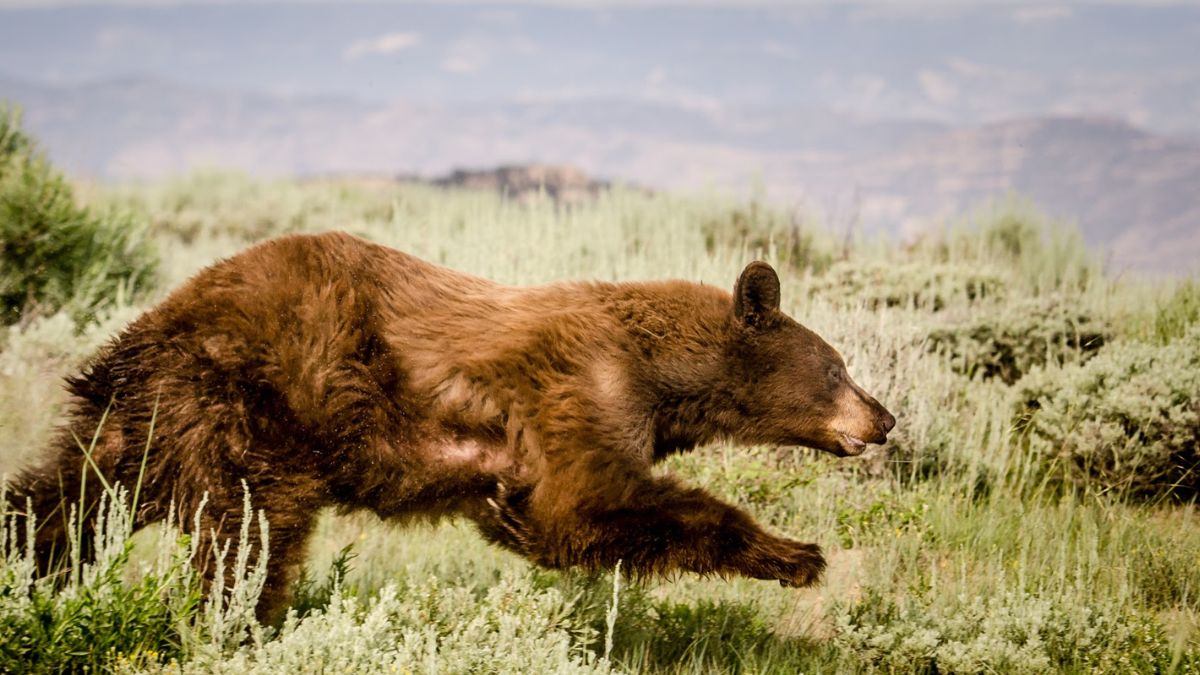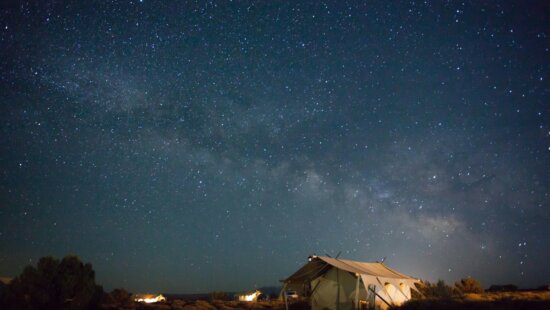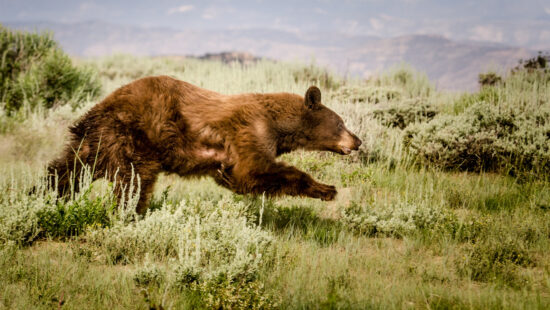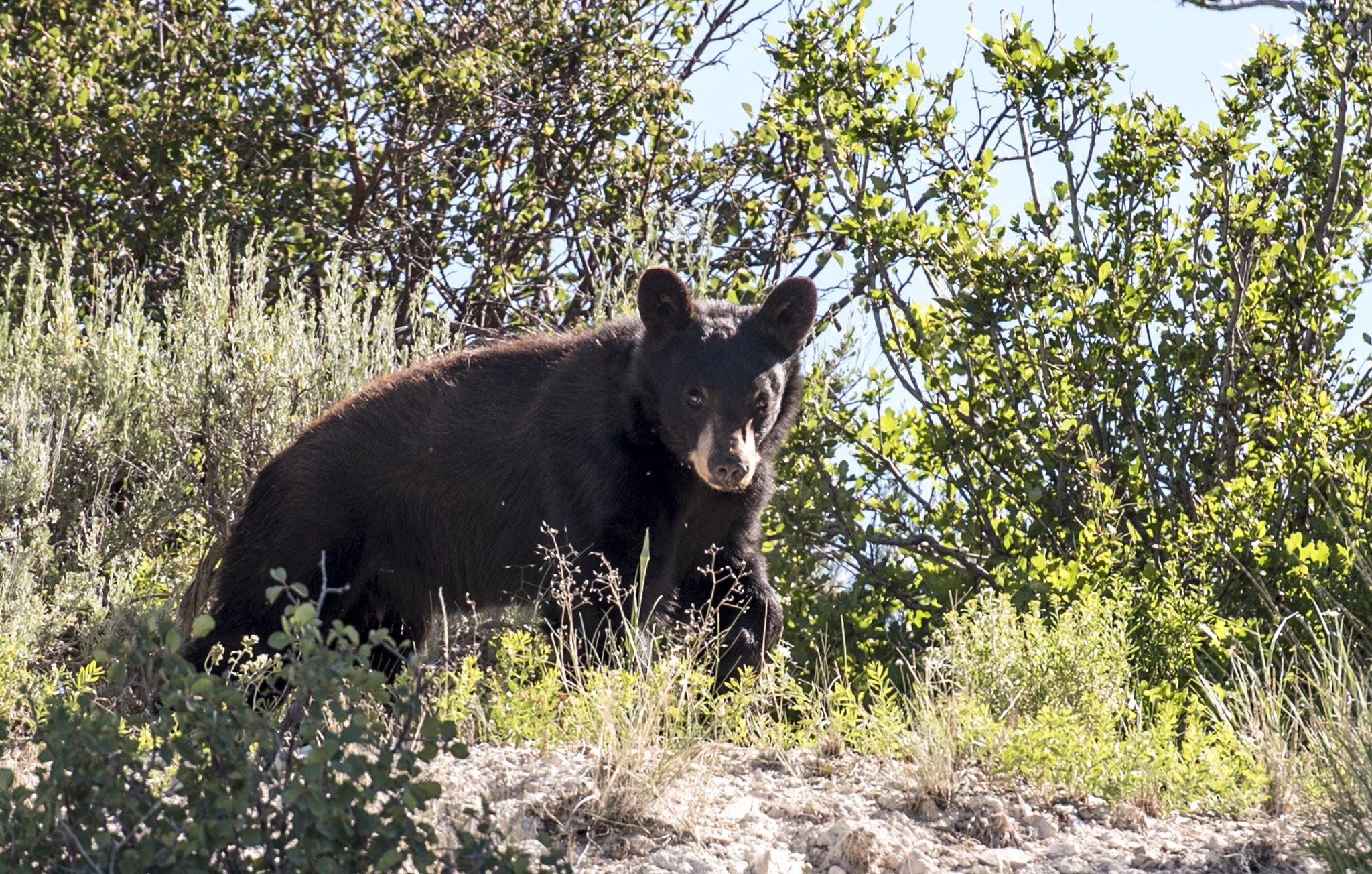Wildlife
DWR tips to help you avoid conflict with black bears this spring and summer

Photo: Courtesy of Utah Division of Wildlife Resources
UTAH — The Utah Division of Wildlife Resources (DWR) has provided several tips to help prevent human conflict with Utah’s black bears as they emerge from hibernation this spring.
According to a press release from the DWR, bears are emerging from their dens later that usual this year due to the unusually deep snowpack in some parts of the state.
While black bears typically eat plants and insects during the spring, they have no problem eating human food, and many conflicts arise when bears scavenge for food humans eat while camping in the bear’s natural habitat.
“Even though they’re incredibly strong and surprisingly fast, black bears will typically do everything they can to avoid people,” said Darren DeBloois, DWR game mammals coordinator. “When a bear finds food, though, that all changes. A bear will often become aggressive toward anything it perceives as threatening the area where it found the food — that includes people.”
Bear proof food and supplies.
Store food and scented items, such as deodorant and toothpaste, in areas bears can’t access, such as a locked trailer or the trunk of your car. This will reduce the chance that a bear will smell food that could attract them to your area.
Keep your cooking area clean.
Thoroughly clean your cooking area after eating, including utensils and anything else that was used to prepare food. Put used cooking oil or grease into a container and pack it out with you. Cleaning your cooking area will reduce the chance a bear will smell food or trash that could lure them into your campsite.
Keep your campsite clean.
If you pack it in, pack it out. Food scraps and trash can attract bears to your campsite long after you are gone, potentially creating a dangerous situation for the next campers.
Never feed a bear.
Feeding bears can cause them to lose their natural fear of people, which can be incredibly dangerous. Once a bear has lost that fear, DWR officers will likely have to euthanize the animal to keep the public safe.
“We got into the wildlife profession because we love wildlife,” DeBloois said. “We enjoy managing and protecting animals so Utahns can get outdoors and enjoy them. Having to euthanize an animal — because someone didn’t do something as simple as keeping their campsite clean and storing food in a secure area — is tough. Please don’t put us in that situation.”
Bear-proof outdoor garbage cans.
Either store your trash in a secure location or bear-proof container.
“If you don’t have access to a bear-safe garbage can or dumpster, make sure to store your garbage can in your garage and put it out for pick up in the morning, rather than the night before,” said a press release from the DWR. “Also, make sure to clean your trash container regularly to eliminate some of the odors that attract bears.”
Remove any items that could attract a bear to your house.
If you live in the foothills or other mountainous parts of the state, it’s important to clean or properly secure items in your yard that could attract a bear.
Some of these items include:
Birdfeeders (both seed and hummingbird)
Fruit trees
Compost piles
Beehives
Pet food and water bowls
Unsupervised outdoor pets (especially at night)
Barbecue grills
Know what to do if you encounter a bear.
Stand your ground: Never back up, lie down or play dead. Stay calm and give the bear a chance to leave. Prepare to use your bear spray or another deterrent.
Don’t run away or climb a tree. Black bears are excellent climbers and can run up to 35 mph — you cannot outclimb or outrun them.
Know bear behavior. If a bear stands up, grunts, moans or makes other sounds, it’s not being aggressive. These are the ways a bear gets a better look or smell and expresses its interest.
If a black bear attacks, always fight back. And never give up! People have successfully defended themselves with almost anything: rocks, sticks, backpacks, water bottles and even their hands and feet.
When to report a bear sighting.
If you see a bear in the foothills or in the canyon areas report it to the DWR only if it is aggressive, or if it’s getting into trash or fruit trees. Report any bear that has wandered into lower elevation areas and is within city limits or heavily-populated areas.



















